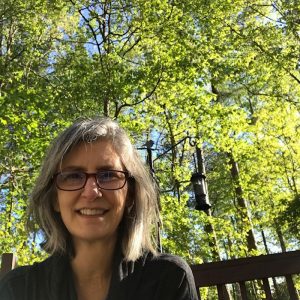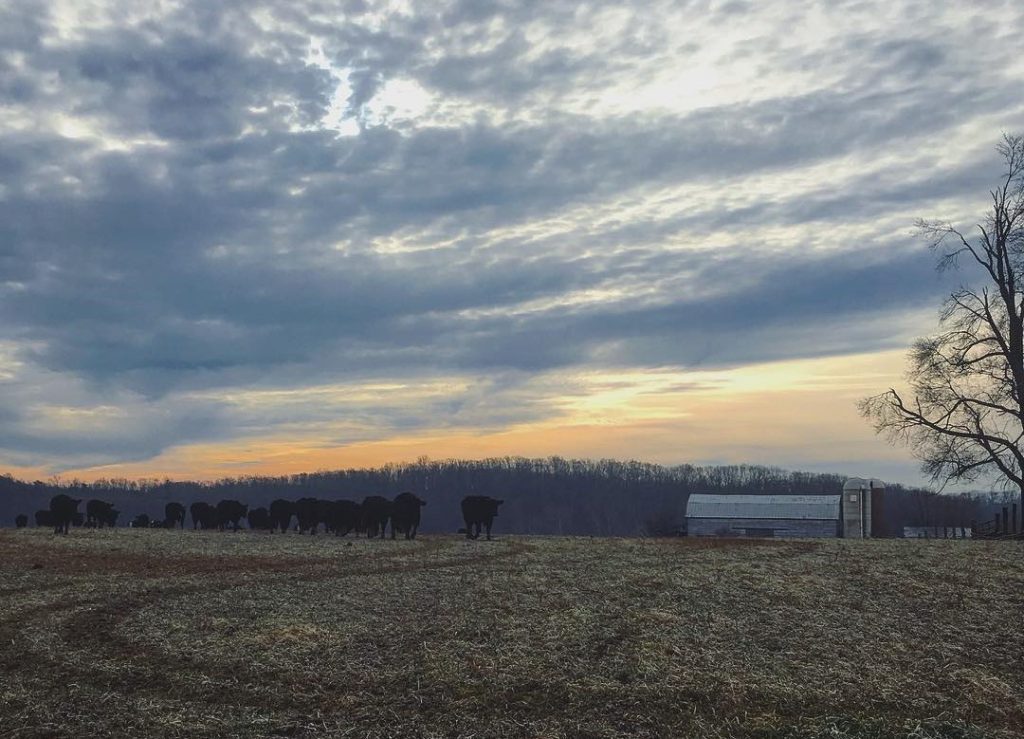
“Farms & Forests” is a new series showcasing VOF-protected working lands that take innovative approaches to resource management, revenue generation, and partnerships.
Alex Moore didn’t anticipate using his degree in entrepreneurship back at the family farm, but after a year working behind a computer at a tech company in Charlottesville, he knew he needed something different. “I felt disconnected,” he says. “I needed more physically and mentally demanding work—and the family farm offered that in spades.”
He thought he could get back to growing things and use his marketing knowledge to connect the farm’s products directly with the consumer. “There was market opportunity for a smaller, direct-to-customer operation that would dovetail well with our family’s cow-calf operation. So for the past ten years I’ve been building a client base and a brand that is slowly growing into its own sustainable business.”
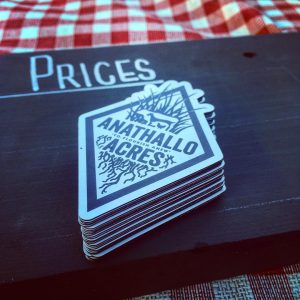
The brand is Anathallo Acres, (from the Greek, meaning “to flourish anew) named for his 200-acre family farm in Augusta County. There, Moore raises grass-fed beef, pastured poultry and pork and grows gourmet mushrooms, all with a focus on regenerative agriculture. The Moore family protected the entire 231-acre parcel with an open-space easement in 2016.
While caring for the land is his first concern, Moore is also growing partnerships with other farms, businesses, and conservation organizations to help his community thrive beyond the farm gate. “In the end, I’m trying to do all these different things,” he states. “I’m foolishly trying to be marketer, operator, salesman, distributor, delivery man…you get the idea. But I realize I could do these things so much better if I’m willing to hand off some responsibilities, if I have the attitude of, ‘This farm over here can do this better. What if we partnered together instead of constantly trying to reinvent the wheel?’” He’s joined forces with farms that take Anathallo Acres products and advertise and distribute them for him. “I would give them a chunk of my take-home, and in exchange I get to turn the time I saved back into focusing on the production and honing in on the craft” of farming, he states. Moore sees these sorts of collaborations as the future of small operations working in the regenerative space. “It shouldn’t be one hundred small farmers trying to do absolutely everything themselves,” he adds. “We’re running ourselves straight off the burnout cliff doing it that way.”
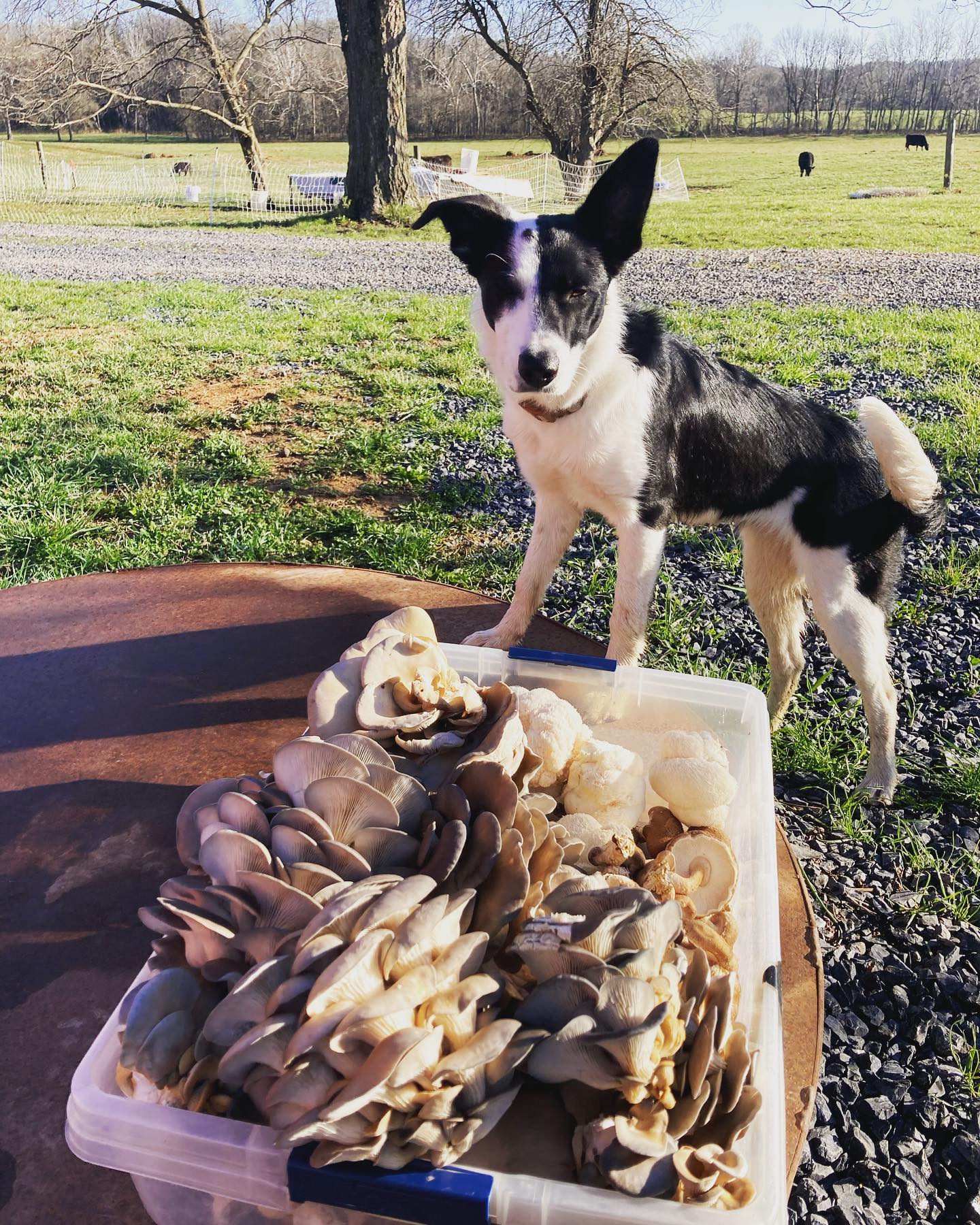
Moore focuses on the marketing side of things in his mushroom production, where he’s teamed up with other growers who produce the pre-inoculated substrate needed to grow the mushrooms. He then markets and sells what he grows to the Staunton Farmers Market, other farms like Poplar Ridge and Sylvanaqua, and organizations like Foodlore Provisions and Project Grows. He also partnered with a neighboring farm to purchase an autoclave, a piece of equipment that sterilizes the substrate needed to grow the mushrooms, to help them expand their operation. “Without me in the equation it really didn’t make any sense for them to buy it, but now they can produce more and I get more varieties to sell than I had before.”
The 4th -generation farmer is also forging partnerships with businesses and conservation organizations. A partnership with Middle River Outfitters gives the company and its angler clients access to a stretch of Christians Creek on the property for private fly-fishing expeditions. “It’s been great,” Moore says of the collaboration. “We get a rod fee for creek access and oftentimes, before the client leaves, they’ll also pick up a few products from me as they head home,” Moore states. To further improve the health of the stream and allow Middle River Outfitters to have better access to Christians Creek, Moore partnered with Louise Finger of the Department of Wildlife Resources to remove a failed bridge he inherited from the previous owners of the property. Through months of planning and permitting, Finger guided Alex and his father as they worked to successfully demolish the bridge, restoring the stream bank to allow for better flood management and natural fish migration.
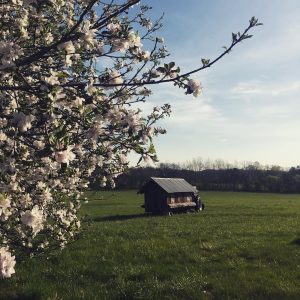
Perhaps Moore’s most important partnership is with his father, Lewis, whose cow-calf operation runs alongside Anathallo Acres. “I work sixty percent of the time for his operation and sixty percent for mine,” he jokes. Recording the easement on Anathallo Farms was important for “us to have those harder generational conversations. The language of perpetuity forced us to look at the farm as something spanning beyond one or two or even four generations and to truly consider how we can do justice to this ground that we love so dearly. And the tax savings and change in the land’s valuation has offered our family some breathing room and capital to reinvest in the farm and lay the foundation for it ‘to flourish anew’ into future generations—whether it’s still in our family or in some other caring farmer’s hand.”
